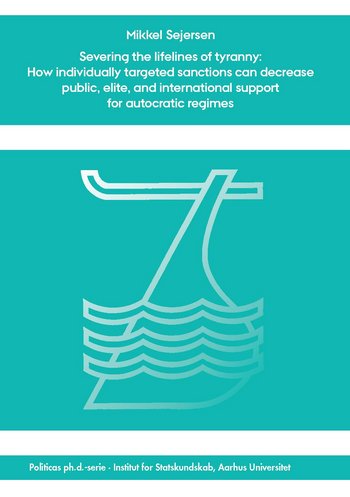Mikkel Sejersen
Severing the lifelines of tyranny: How individually targeted sanctions can decrease public, elite, and international support for autocratic regimes

Previous studies have examined whether targeted sanctions can exert pressure on a regime and thereby generate policy concessions. However, these studies share three limitations. First, the presence or absence of policy concessions is a rough indicator and frequently fails to reflect pressure exerted on the regime. Instead, in this dissertation, I examine regime support and pose the overall research question: How can targeted sanctions decrease support for autocratic regimes? Second, targeted sanctions manipulate the incentives of the domestic and international supporters of the regime. However, previous studies fail to explore how targeted sanctions affect these actors. Therefore, I examine how targeted sanctions can affect public, elite, and international support for autocratic regimes. Finally, previous research usually examines all types of targeted sanctions imposed by a single sender. This conflates the effects of different instruments and excludes relevant cases from other senders. I construct a dataset covering only asset freezes and travel bans imposed by the UN Security Council, EU, and US. Turning to my findings, targeted sanctions may decrease public support by acting as a signal of support for opposition groups while preventing the rally-around-the-flag effect. Targeted sanctions can decrease elite support by altering the balance of power between different factions that provide support for the regime. Finally, targeted sanctions may decrease international support by weakening the bargaining position of the regime relative to its international supporters. Overall, the findings improve the ability of policymakers to use targeted sanctions effectively.
![]() Ophavsretten tilhører Politica. Materialet må ikke bruges eller distribueres i kommercielt øjemed.
Ophavsretten tilhører Politica. Materialet må ikke bruges eller distribueres i kommercielt øjemed.